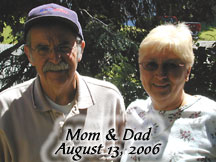This new study shows that plaque dissolving medicines not only don't work, they may make things worse.
The study my dad was in involved dissolving plaque and making new plaque not stick, and we had been told it was promising and would be available to the general public in a few years. Perhaps that drug was one of the other types mentioned at the end of the article; I'm afraid some of the medical jargon is beyond me.
A once-promising pathway for research into preventing and treating Alzheimer's disease may have been derailed by a surprise chemical finding...Scientists in laboratories around the world have been investigating drug candidates called amyloid inhibitors, which many experts believed could keep proteins such as amyloid-beta from sticking together in brain tissue.....
A team of chemists at the University of California, San Francisco, found that these candidate drugs form large, unwieldy clumps themselves, rendering them useless as targeted therapy against amyloid in the brain....
In other words, the drugs lose their ability to migrate to the brain to fight amyloid plaque. They also give up their targeted specificity against amyloid....
(A)ntibody-focused strategies aimed at eliminating plaques, or treatments focused on easing the downstream effects of amyloid buildup (still have potential).
(I)t's still not certain whether protein plaques even cause Alzheimer's and other brain diseases, or whether they are merely byproducts of the disease process.
All that money and work, for nothing. I hope these researchers can find something more promising to work with.
(Screenprint of article as accessed 01-31-2008)
The final Verse
6 months ago

